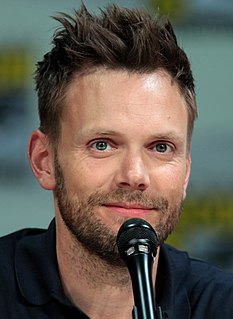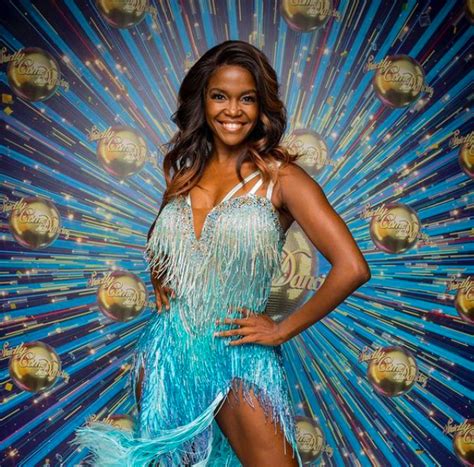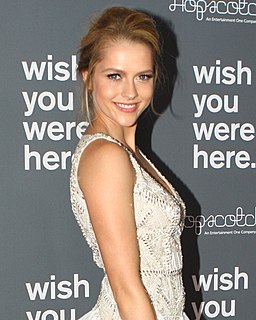A Quote by Ethan Hawke
Years ago I was going to play Chet Baker in another movie and I really felt drawn to that character and the script is good and I met with Robert and we seemed simpatico and we developed. But I had a real passion for that role and that brought me deep into that film 'cause I got the sense that Robert Budreau was going to really let me be creative inside this part.
Related Quotes
I read the script [ of 'Steve Jobs' movie ], and it was very, very good. I wasn't sure they would want me to be in the movie, but I auditioned for it. Which I hadn't done in a few years. But I had auditioned in the previous few years for another movie that I did not get the part. And so my track record wasn't good. But I really wanted to audition because I was worried that I was going to blow it, and I wanted it to be on them for choosing me.
Without a doubt, Robert Rodriguez is the reason I was drawn to it. The fact that he even knew who I was and then was interested in me for the role was amazing. I am a huge fan of his and it's like a bucket list thing for me to be able to work with him and knowing that Jessica Alba and Jeremy Piven were in it I knew that part was going to be good and as you said, the pedigree of the series was great, so it was really one of those things I couldn't resist.
Me and Conan O'Brien and Robert Smigel and Dana Carvey wrote a script called 'Hans and Franz: The Girlyman Dilemma,' and it was going to be co-produced with Arnold Schwarzenegger, and he was going to co-star in it. We had a deal with Sony, we got paid to write it, and it was a musical, but it never got made because...I think Arnold kind of backed out at the last minute because he was getting cold feet because ;The Last Action Hero' had come out, where he was parodying himself. But it was a really funny script, and I wish it could've seen the light, because I think it would've done really well.
When Henry Hill [in Goodfellas] got arrested for the first time and Robert DeNiro met him at the courthouse and Henry Hill was really upset, 'cause he thought Robert DeNiro would be really mad at him. And DeNiro comes up to him and he gives him a $100 and he goes, "You got pinched. We all get pinched, but you did it right, you didn't say nothing."
I did this movie right after it about the life of Chet Baker. It's called Born to Be Blue. In that situation, there's a real clear character you're drawing on. It's a real person. It's really exciting and interesting to do the research to figure out how to make that a nuanced, three-dimensional human being.
That was Robert Aldrich. And that [Emperor Of The North] was one of the only times I actually got a part in a movie in the conventional way: The role was there, I auditioned, I auditioned again, and then I actually did a full-fledged screen test, which they shot on a soundstage on the lot at 20th Century Fox. They put up a set, and Robert Aldrich actually directed me in this screen test.
I got to play a funny part [in the The Master Of Disguise]. There was one thing my character did that involved flatulence and laughing at the same time - that was in the script - and that was basically what sold me on it. I really thought, "This can't help but be funny." And when I saw the film, I was proud that I'd had those moments.
My job - and it's really true - is that it's constantly evolving and changing. When I was doing the Chet Baker movie I was obsessed with playing the trumpet, and to my absolute shock I haven't picked the trumpet up since we wrapped. It was so much work. I thought I was going to keep playing the rest of my life, 'cause it was fun, it's just a lot of work. And it's a really unique job that exposes you to a lot.
I live in New York, and Clara lives in Recife. The character is Brazilian, and as I read the script, I felt like Kleber [Mendonca] had been spying on me in order to create this role [in Aquarius]. Clara and I have different backgrounds. I come from an intuitive world, and she's an academic, but when we got together, we really became one. There are many times when I'm watching the film where Clara will say something, and I will find myself agreeing with her. It was the first time that I had this weird sensation that the character I played is so me, but yet it's so her.
Even though Helen Vendler wasn't on the Harvard faculty when I came first in 1979, she was a guardian spirit; Robert Fitzgerald gave me the use of his study in Pusey Library. Monroe and Brenda Engel kept open house, Bob and Jana Kiely made me at home in Adams House. Then, too, in 1979, Frank Bidart, whom Id met in Dublin after the death of Robert Lowell he was over seeing Caroline Blackwood Frank brought me into his circle of friends, including Robert Pinsky and Alan Williamson.

































